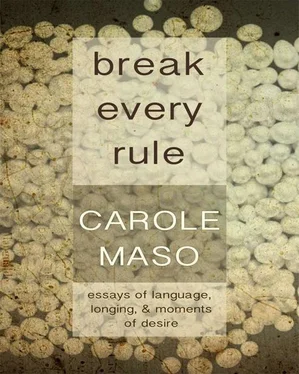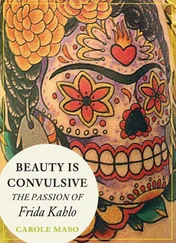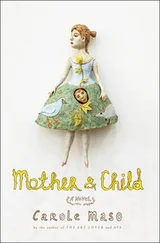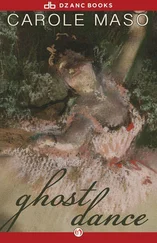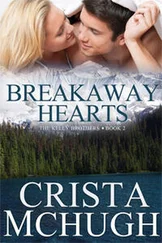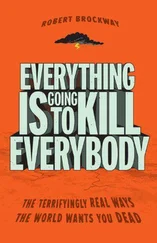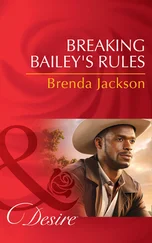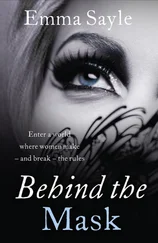Who has conjured whom here? One more time I begin to question my notions of the real. Some part of me is still in Paris and I look up to the beautiful floating window written in wrought iron, the astounding calligraphy of its balcony, to where the woman, when she is French, opens The Fourth Book of Desire or The Book of Good-bye once more. Set into a delirious language motion, sex motion, in the hovering, luminous afternoon. Today it seems from her all else has been spun. On another day, based on my reading, or my mood, or my desire for the text, it might be Sappho, beached on that lilting nymph who dreams the rest of Aureole’s cast into creation. What do we know of what she wrote or saw in the place where the papyrus tore? Or perhaps it is the woman who writes on the sheets. Who has conjured little Anna, trembling in the fire garden — walking away from almost everything — and then finally from everything…. Are these aspects of the unfolding self? Shall they ever find each other? Or is that not it at all? Where do I, Carole, exist in all of this? I cannot tell you the longing these figures bring up in me — each of us rising out of the other’s want, each in dialogue with the other — as I attempt to live a little more through the openness and fluidity of the form. Do the women on the winter beach dream Steven? Or has he in his solitude and need created them? Will he ever know the opium addict who has left her bleary snow globe on his mantle? And Anju through veils… Stay awhile. A woman holds a child in her arms. Where has she come from? Where has she gone?
“…streamers flying after.”
True, there is no central character moving through conflict making its more or less linear journey here; but rather a spectrum of consciousness, refracted, escaping and elusive, casting light and shadow in all directions. The potential in us, and the extraordinary, awesome potentials still asleep in the language. Aureole to my mind is the story of a woman who wants. A woman, free, before the author’s final prescriptions. In the erotic, the notion of a stable, static being developing in the traditional ways makes little sense except as some kind of agreed-upon convention of legibility. I have only begun in this book to look for the places in the text where passion might yield another kind of logic, offer a different way of proceeding. Aureole remains a mysterious book to me. And the woman.
How will I find her — without a recognizable plot? How will I find her — as she changes shape and place, without warning? How will I recognize her as she wanders through every genre — that passionate terrain? Where will I garner enough trust, enough faith? How will I ever locate her without the usual landmarks? How will I find her as she blithely moves in and out of obscurity, of shadow and light? Again, the writing asks me to be a better, a braver person than the one I know how to be. None of the usual markers to hold onto. I am interested in how different as a process this work has been from the way I once worked. In my earliest novel, Ghost Dance , I followed a vision of an utterly mysterious woman into a kind of comprehensibility. But in Aureole the tables have turned. Who is that woman on the bridge who in different places and guises continually reappears? In the beginning of this project, I thought I knew; by the end I have no idea. A woman moving along the relentless trajectory of her desire, transformed over and over by it. I see works that will be called novels in the future with a notion of character that is much more mutable. I believe notions of plot as well will be radically reimagined — and become much more open again. This is what art does for me: It opens new places; it affords glimpses not glimpsed before. Without it I not only fail to live fully, but I begin to die. All too aware of the loss, I become a mourning thing.
I have tried to create a vibrant, spacious landscape where I might live. A space that is generous in its allowances. A room of my own — part prose fiction, part prose poem, part journal, part notebook, part memoir, part song, sometimes part biography. None of these forms alone quite meets the dimensions or urgencies I have begun to feel. No one shape quite meets the requirements of my desire. I have needed, I have wanted everything — probably too much. Desire has forced me into odd contortions, new constructions, a more unarticulated and primal space, filled with primitive recollections — notions of light and dark, hot and cold, birth and death, danger, fire, flood — memories of clearings, of harbors, tremor, convulsions as they press their way into language. Tracks in the snow…. When you came to visit me that night you left your enormous footprint in the ice. By the morning it had dissolved — and you. Shapes and forms that far from constricting or defining will be evocative, calling up the history of this ancient place, the memory of survival, the immediacy of hand, pulse of blood, the heat of the intellect, all that is beautiful, all that is still possible (intimations more and more often now of the South of France that sun-drenched…).
Without apology, I have tried to create something of a feminine space. New kinds of intimacies. I do not believe in the myth of ungendered writing. Luce Irigaray is much better than I am on this. She says: “Only those who are still in a state of verbal automatism or mimic already existing meaning can maintain such a scission or split between she who is a woman and she who writes. The whole of my body is sexuate. My sexuality isn’t restricted to my sex and the sexual act (in a narrow sense). I think the effects of repression and especially the lack of sexual culture — civil and religious — are still so powerful that they enable such strange statements to be upheld as ‘I am a woman’ and ‘I do not write as a woman.’ In these protestations there’s a secret allegiance to the between-men cultures.” It is essential, I believe, for women to make their own shapes and sounds, to enact in prose and poetry and all other genres and in all other mediums, their own desire, and not just mimic the dominant forms. We must refuse to emerge already constructed. “The master mouthing masterpiece.” Obviously this is a lot easier said than done. First, because it is difficult and still largely theoretical, and second, because it asks us once again to marginalize ourselves, return to the periphery, just as we are acquiring a recognizable speaking voice (theirs) and being rewarded for doing it so well. Just as we are being embraced — even if it is a conditional embrace. And yet… I like to think of Hélène Cixous at times like this. She writes: “We must work. The earth of writing. To the point of becoming the earth. Humble work. Without reward. Except joy.”
Except joy.
I have tried to make a place where pleasures and arousals spread in a lateral radiance, in a kind of prolonged ecstatic. In an aureole of desire. At once diffuse, specific, and inclusive. A place where what is often discarded as unusable will be kept. A place at once interested in the abstract, distant, and also the utterly urgent, personal, even confessional. A place where we do not have to apologize. A place of forgiveness. I have incorporated, taken into the body of this book, my own past work. That there might be a place where we wouldn’t have to disown ourselves, loathe ourselves in that mild, insidious way, feel ashamed of who we are, or who we were — ashamed by the one who was younger, played it more safely perhaps, made even more mistakes. To embrace our own texts, our written texts, and the texts of our lives. To risk the things they love to call us most: self-indulgent, histrionic, irrational. Indulgent, excessive, pleasure texts — unconcerned with getting to the point. In love with freedom. To walk out of the constraints of perfection, or modesty, or approval, or taste, or integrity as integrity has too often been defined. To escape the burden of the already-constructed and received forms — like the props and scaffolding those traveling players cobble together in hopes of staging the story of the bursting, uncontainable Anju — their efforts, slightly funny, kind of wonderful, a little pathetic, sweet, naive, creaking, and ultimately useless. And this is how I regard the old fictions. I want something else. I want there to be space enough for all sorts of accidents of beauty, revelations, kindnesses, small surprises. A space that encourages new identity constructions for the reader as well as the writer. New patterns of thought and ways of perceiving. New visions of world, renewed hope.
Читать дальше
